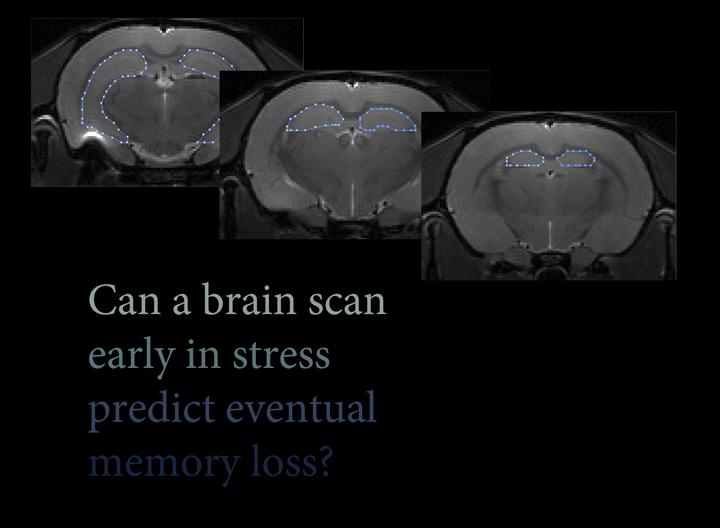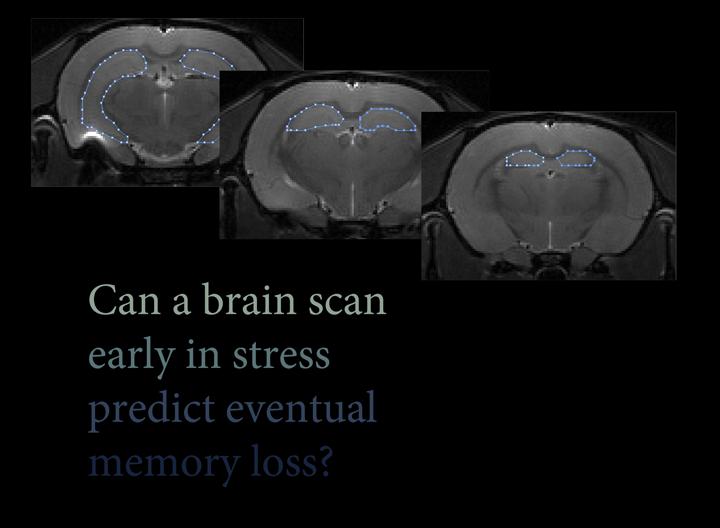
"My workload has shot up after my last promotion, I know that I'm stressed out," says a management executive from Delhi. "I feel anxious all the time, and since starting this job six months ago, I seem to be forgetting small things on a daily basis. Did I take my supplements this morning? Where did I put my car keys? I don't even remember what I had for breakfast yesterday," he continues.
Work pressures, money issues, exams, perhaps an illness in the family – these are common strains in every person's life. But when such daily battles are fought over long periods of time, we become subject to chronic stress.
This chronic stress could be affecting a part of our brain known as the hippocampus – the seat of factual and declarative memory. The hippocampus is a pair of curved structures at the base of our brains and encodes memories of facts and events – names, phone numbers, dates and daily events that we need to run our lives.
New research now shows that even a brief period of stress can cause the hippocampus to start shrinking.This shrinking of the hippocampus – a change in the brain's structure – actually precedes the onset of a change in behaviour, namely, the loss of memory.
"Until now, no one actually knew the evolution of these changes. Does the hippocampus shrink before or after memory loss? Or do the two happen hand-in-hand?" asks Sumantra Chattarji, one of the main investigators in this study.
To address this, a collaborative projectinvolving Chattarji's group from the National Centre for Biological Sciences (NCBS), Bangalore and Shane O'Mara's lab at Trinity College, Dublin,was begun using rats as a model system.
Rats react to stress much as humans do – they develop anxiety-related behaviours and their ability to form memories are affected. Long years of research have established well studied ways to test rats' memories and responses to various forms of stress. This makes rats widely used models to study brain and behaviour related questions.
In the current study, rats were subjected to stress for two hours every day over ten days. The rats' brains were examined with MRI scans on several days over the course of the study, and their ability to form memories were assessed repeatedly using two different tests.
Striking results emerged in the first set of MRI scans taken after just three days of stress – the hippocampus of every stressed rat had shrunk.
"It was a totally unexpected result. Normally structural changes are seen in the brain after a long time – say 10 to 20 days. Three days doesn't even count as chronic stress," says Chattarji.
Five days after stress exposure, the rats' hippocampus-based ability to make memories were tested. Here again, the researchers were in for a surprise.
Stressed rats performed almost as well as unstressed rats.
"Volume loss and shrinkage has already happened, yet spatial memory is still holding up," says Chattarji.
At the end of the chronic stress regime, the hippocampus of stressed rats had shrunk even more. Further, a second and different memory test performed after this scan,showed stark differences between stressed and unstressed rats. Stressed rats performed poorly in this test compared to unstressed rats.
These findings, published in the journal Scientific Reports, also detail other interesting aspects of how the brain changes in structure during stress. In the early days of stress, shrinkage in the left hippocampus is more pronounced, but at the end of ten days, the right hippocampus loses the most volume.
"Right now, we don't really know the functional significance of this. There is some evidence that in mice undergoing social stress, only the left hippocampus shrinks. If there is any inherent difference between the left and right hippocampus, that needs to be studied," says Mostafizur, a PhD student with Chattarji and the lead author of the study.
Another discovery is that there are individual differences amongst the rats in how much the chronic stress regime affected them. The amount of shrinkage in a rat's hippocampus on day 3 can predict the shrinkage seen at the end of the 10-day stress period. The higher the shrinkage, the worse the rats'performance in memory tests at the end of the stress.
"This makes it even stronger that volume loss is a pretty good predictor of what the behavioural consequences will be at a much later stage," says Chattarji.
Many different groups, including Chattarji's have studied stress in rodent models for a long time. "What comes out in our study is that there are individual differences between rats," says Mostafizur. "In today's world, with so much talk about personalised medicine, these results could have huge implications for future studies on human disease," he adds.
###
Media Contact
Sumantra Chattarji
[email protected]
http://www.ncbs.res.in





